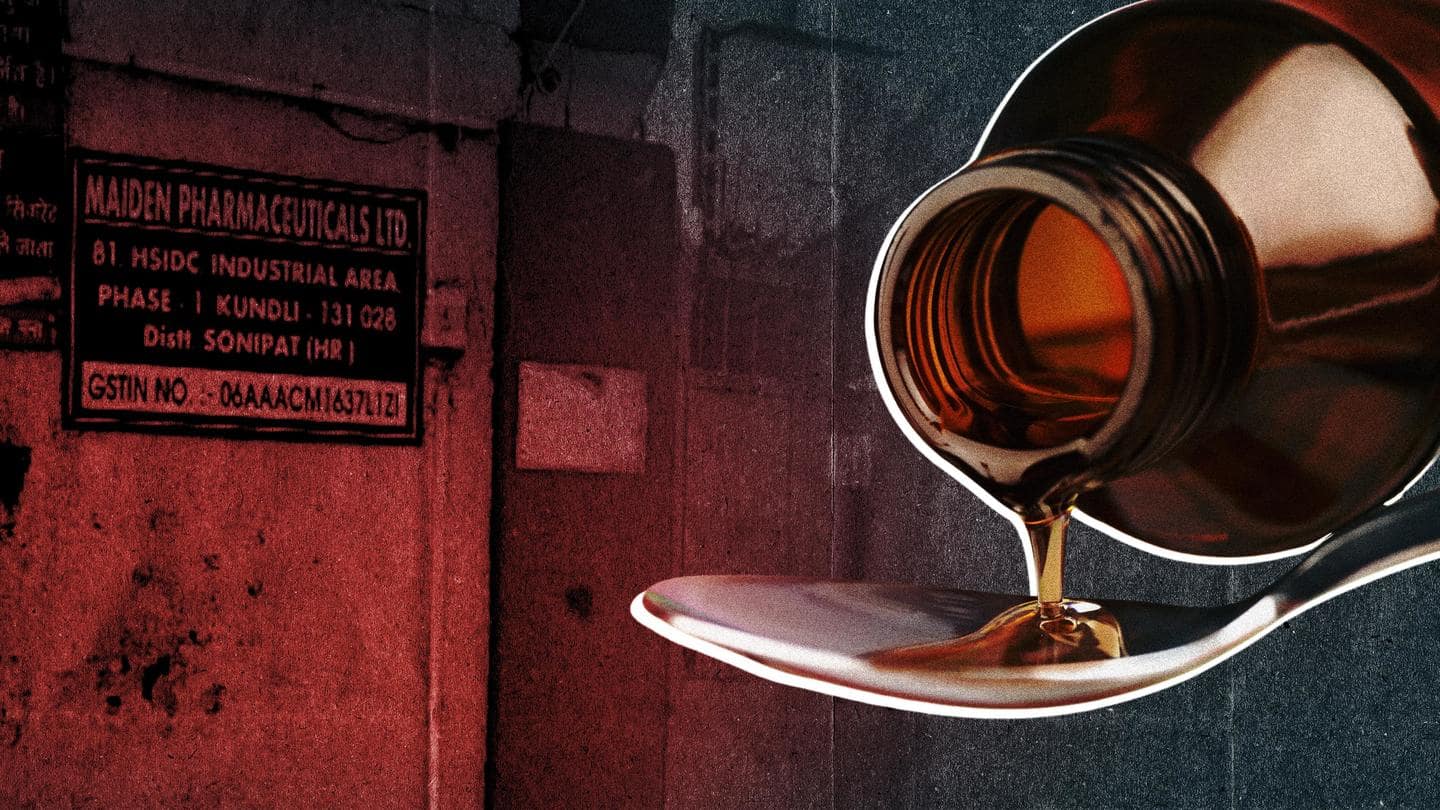
Haryana government halts cough syrup production linked to Gambia deaths
What's the story
The Haryana government suspended cough syrup production at a Maiden Pharmaceuticals facility on Wednesday, a week after the World Health Organization (WHO) warned that the drug may be related to the deaths of scores of children in the Gambia.
The state health minister Anil Vij stated that officials investigated a Maiden factory in Sonepat and found 12 breaches of good practices, according to ANI.
Context
Why does this story matter?
Over the last few months, scores of children aged under five years died within days of being administered a locally sold paracetamol syrup.
Medical officers in the west-African country raised an alarm and an investigation was opened on July 19.
The Gambian health ministry issued an advisory on September 9, a month after the death of at least 28 children from kidney failure.
Testing
WHO report raised flag last week
Last week, the WHO announced that laboratory testing revealed "unacceptable" levels of diethylene glycol and ethylene glycol in four Maiden products: Promethazine Oral Solution, Kofexmalin Baby Cough Syrup, Makoff Baby Cough Syrup, and Magrip N Cold Syrup.
The case was also probed by India's main regulatory body, the Central Drugs Standard Control Organization (CDSCO).
Twitter Post
Watch: Haryana health minister Anil Vij speaks
#WATCH| Central Haryana drug depts conducted a joint inspection. Around 12 flaws found, keeping which in mind, it's been decided that total production shall be stopped; notice given: Haryana Health Min Anil Vij after WHO issued product alert of cough syrup of Maiden Pharmas Ltd pic.twitter.com/XOlEyqjAlq
— ANI (@ANI) October 12, 2022
Incident
69 children died in Gambia from acude kidney injury: Officials
According to Reuters, the Gambian Police's preliminary investigation indicated on Tuesday that cough syrups produced in India and imported through a U.S.-based firm were responsible for the acute renal damage that resulted in the deaths of approximately 69 children.
It's one of the worst incidents involving drugs from India, sometimes referred to as the "pharmacy of the world," according to reports.
Supply
Global exposure possible: WHO
Licensed by the Haryana State Drugs Controller, Maiden Pharmaceuticals has exported the said medicines only to the Gambia until now, PTI reported.
However, the WHO said these medicines could have been supplied to other countries in Africa through unregulated channels.
The firm could have used the same contaminated material to manufacture other products as well, indicating the feasibility of global exposure.